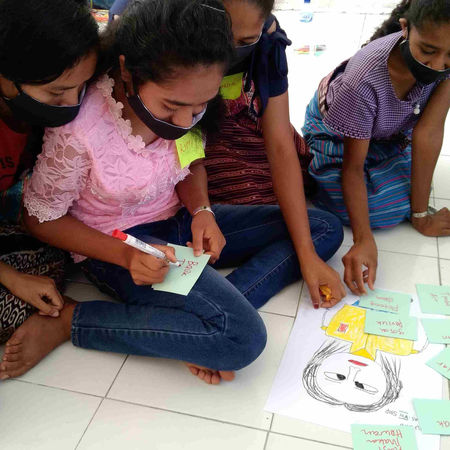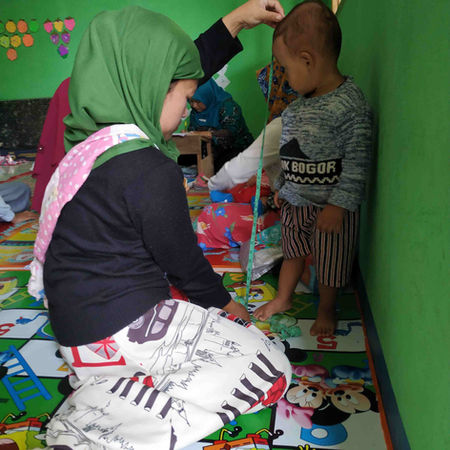
Better Investment on Stunting Alleviation
Formative research to support the development of SBCC strategies
In 2019, Empatika was involved in the Better Investment for Stunting Alleviation (BISA) program by Save the Children and Nutrition International to assist the Government of Indonesia with its National Strategy to Accelerate Stunting Prevention (2018-2024). The BISA program emphasizes the need for local solutions where engaging local people and their own ideas will drive sustainable behavior change. The project included two priority provinces and districts: West Bandung in West Java and North Central Timor in East Nusa Tenggara.
To achieve this and support the development of Social and Behaviour Change Communication strategies for stunting alleviation programs in Indonesia, Empatika conducted a multi-phase project using a combination of participatory approaches to explore maternal, infant, and young child nutrition as well as water, sanitation, and hygiene (WASH) practices of adolescents, pregnant and lactating women, and caregivers of children under two. These approaches included:
Immersion research
Participatory structured research to follow-up on issues highlighted during the exploratory phase
People-driven social behavior change design workshops at the community level to brainstorm and prototype potential solutions to challenges identified by community members themselves.
Some of the key insights included:
Views vary across the study locations regarding what is good care during pregnancy.
Myths and customs about what is healthy and what is not are prevalent across locations. No special diet is considered necessary for pregnant mothers.
Most women fall short of the recommended minimum of four ante-natal care (ANC) check-ups. Iron and folic acid (IFA) tablet intake is affected by both erratic ANC attendance and low/lack of stock of IFA tablets.
The importance of the culture of ‘40 days’ post giving birth was apparent across study locations but involved different practices.
There was little concern about the diet of breastfeeding mothers except some advice on eating certain leaves (especially katuk, which is believed to encourage milk flow).
Grandmothers take much of the care responsibility for babies under one year.
Mothers nearly always make the day to day household finance decisions and therefore the decisions on food purchase. Across locations, little else is given other than plain rice porridge to infants between 6-8 months.
Adolescents across all the study locations eat the same low protein diets that their families eat. Only in three locations had adolescent girls received IFA tablets (once at school). Adolescents shared that they can access health services independently at about junior high school age.
The attendance and operations of posyandu observed in each study location varied. Some would only come for immunization or if vitamins were being distributed.
Across study locations we observed a focus on measurement at posyandu rather than providing advice.
Location
West Bandung, West Java; North Central Timor, East Nusa Tenggara
Methods
Immersion research, participatory structured research, people-driven design
Participants
Families, adolescents, pregnant and lactating women, caregivers of children under two, health providers, community members, and community influencers (e.g. religious leaders, village government, educationists etc)








